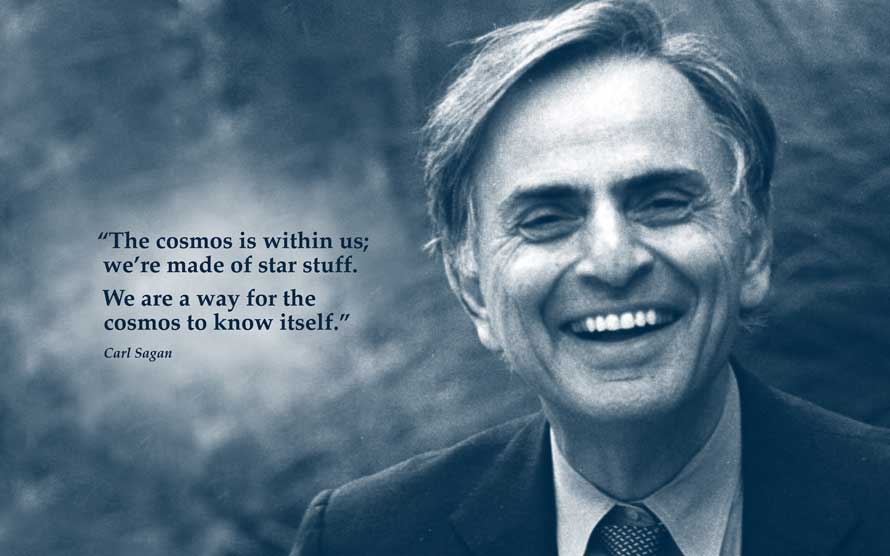If it is anything that resides on two sides of a coin, it is religion and atheism, they contrast each other like a head and tail. It does not matter who tells this, Einstein or Dick Cheney, Science is just far far away from any of that. Science is only an ideal value, which intelligent human beings have fortunately sustained through ages. There is intelligence in religion, there is so in atheism and there is so in science, but they are all rested on different values.
One can argue that there are scientists that are atheists and there are the scientists that are believers of a creator and a philosophy of creation. But that does not bring atheism or religion, as contrasting values towards, the ideals of science.
There is a need to understand the values of science, it is subtle and it is far-reaching. Far reaching by its definition means something which one does not have to carry like one carries a belief, but when one investigates and discovers, one finds the inherent values, all refined and understood, in the contemporary system.
That is how we know what science was there a millennium ago. Of-course the index of far-reaching ideals is the fact that these were saved for future generations in their own ideal, without contrast to the religion and atheism of the contemporary times.
But with religion and atheism, they are to be carried physically, through doctrines, belief and social and existential parameters, where atheism is strongly critical of religious dogmas. That does not make atheism a scientific value, what it tells you is, it is socially and existentially possible for a large number of the members of any community to be anti-committal to the principles of moral and social values, propounded by religious organizations and individuals.
Science can only make this a little contrasting, in favor of atheism in some cases and religion in none. Its an advantage of sort for atheism. Science works like a glass or a lens, because it is the principles and ideas that embody the philosophy of science. Philosophy being a purported carrier of human intellectual and nonintellectual givings, — the favor of science toward atheism only philosophically assuages the needs of atheists, who find in science, some way, to be detached from a binding adherence of morality and dogma and doctrines, propounded by a faction, howsoever large they are in their concentration.
How much science prefers religion?
Hardly it does except, an atheist like Weinberg, is a fierce supporter of Israel whereas a strong source of inspiration of religionists Mr Einstein refuses to be the president of the Jewish state. Atheists change their social roles and it is in these change or mutation of roles that one sees a supporter of a particular religion or the more subtle and weaker form of sympathy, for that type and in that same mutation, scientists with known sympathy for certain religious ways, refuse to be drawn into a politics of religion.
Its all in the principle of mutation and that’s a scientific value, the understanding of mutation, as an abiding and wielding law of social dynamics can be a subtle and non-mainstream scientific inspiration. Science is the inherent truth in any situation and the scientist as a person is driven by an urge to understand and explain the inherent truth of a situation.
There is no such principle that I know of which says — arts, science and religion are all different branches of the same tree. That would be a superfluous attempt to unite an undercurrent of delusion and destitution into drawing sympathy from a wider group of audience of scientific remarks.
Einstein was a victim of such isolation from a social acceptability, like Newton was a victim of directing his interests towards alchemy. Like Hawking did not understand the need of a scientist to sympathize with the pain of another giant Newton, who was a marvelous example of proportion and like the massive hype of historians of Physics and the followers thereof painted the humongous nature of Newton, to be one who was willing to punish those who obstructed him and who were his detractors, at any cost.
Humility therefore forced upon men, who taught us sagacity in the wickedest moments of history of science, even long after they are gone, is a humility that better be reserved for those pricks that preach so because it would teach them a word of disagreement, that can only tell the world, what one really means.
If we can not accept such strictarian attitudes, in conveying what we do really believe in and sway up to the world opinion we have fundamentally intended, to bruise a value of science, we have to be forthright even in the face of criticism.

Leave a comment